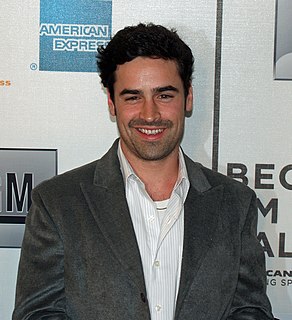A Quote by Brad Goreski
Related Quotes
On the whole, dialogue is the most difficult thing, without any doubt. It's very difficult, unfortunately. You have to detach yourself from the notion of a lifelike quality. You see, actually lifelike, tape-recorded dialogue like this has very little to do with good novel dialogue. It's a matter of getting that awful tyranny of mimesis out of your mind, which is difficult.
You know, this dialogue is only helpful when we come, both of us, to a point where we realize that no dialogue is possible, that no dialogue is necessary. When I say understanding or seeing, they mean something different to me. Understanding is a state of being where the question isn't there any more. There is nothing there that says, "Now I understand!" That's the basic difficulty between us. By understanding what I am saying, you are not going to get anywhere.
Rather than make claims of final theories, perhaps we should focus on our ever-continuing dialogue with the universe. It is the dialogue that matters most, not its imagined end. It is the sacred act of inquiry wherein we gently trace the experienced outlines of an ever-greater whole. It is the dialogue that lets the brilliance of the diamond’s infinite facets shine clearly. It is the dialogue that instills within us a power and capacity that is, and always has been, saturated with meaning.








































